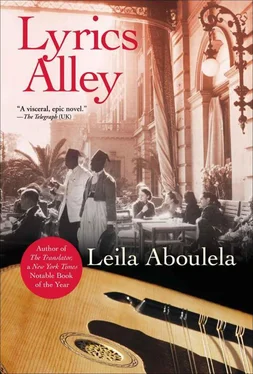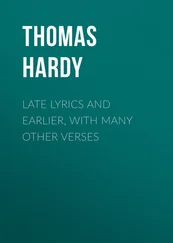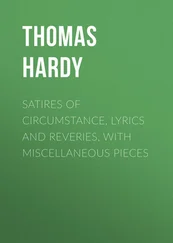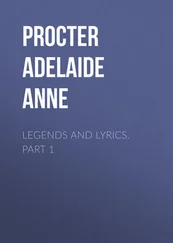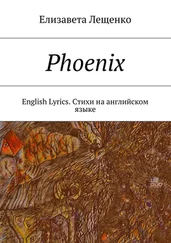Leila Aboulela - Lyrics Alley
Здесь есть возможность читать онлайн «Leila Aboulela - Lyrics Alley» весь текст электронной книги совершенно бесплатно (целиком полную версию без сокращений). В некоторых случаях можно слушать аудио, скачать через торрент в формате fb2 и присутствует краткое содержание. Год выпуска: 2011, Издательство: Grove Press, Жанр: Современная проза, на английском языке. Описание произведения, (предисловие) а так же отзывы посетителей доступны на портале библиотеки ЛибКат.
- Название:Lyrics Alley
- Автор:
- Издательство:Grove Press
- Жанр:
- Год:2011
- ISBN:нет данных
- Рейтинг книги:5 / 5. Голосов: 1
-
Избранное:Добавить в избранное
- Отзывы:
-
Ваша оценка:
- 100
- 1
- 2
- 3
- 4
- 5
Lyrics Alley: краткое содержание, описание и аннотация
Предлагаем к чтению аннотацию, описание, краткое содержание или предисловие (зависит от того, что написал сам автор книги «Lyrics Alley»). Если вы не нашли необходимую информацию о книге — напишите в комментариях, мы постараемся отыскать её.
Lyrics Alley — читать онлайн бесплатно полную книгу (весь текст) целиком
Ниже представлен текст книги, разбитый по страницам. Система сохранения места последней прочитанной страницы, позволяет с удобством читать онлайн бесплатно книгу «Lyrics Alley», без необходимости каждый раз заново искать на чём Вы остановились. Поставьте закладку, и сможете в любой момент перейти на страницу, на которой закончили чтение.
Интервал:
Закладка:
Although biology and chemistry were her favourite subjects, Soraya loved reading romantic novels in which the heroine was beautiful and high-spirited. She relished drama and action. Halima thought it insular to shut off the world and read.
‘It’s as if you are telling people you don’t want to chat to them,’ she said.
Idris shouted at her the day he saw her bent over his newspaper. He snatched it out of her hands, because newspapers were written for men. Her late mother had never read the newspaper; she was illiterate. Halima, who could read a little, never did and Fatma’s favourite subject at school had been maths. But for Soraya, words on a page were seductive, free, inviting everyone, without distinction. She could not help it when she found words written down, taking them in, following them as if they were moving and she was in a trance, tagging along. A book was something to hide, the thick enchantment of it, the shame, almost. When everyone was asleep, she would creep indoors, into stifling, badly lit rooms, with cockroaches clicking, to open a book at a page she had marked and step into its pulsating pool of words.
Books were scarce and precious. Nur lent her books, English novels he bought from Alexandria and Cairo. He would talk about a book for so long that she would know the whole story before even starting to read it. She had never read an English novel that he hadn’t previously read. He was her introduction, and it delighted her that he always remembered her. True, she could not read Shakespeare like him, for he went to the prestigious Victoria College in Alexandria, and in Sisters’ School the Italian nuns did not teach Shakespeare, yet he would narrate to her all the plays, his enthusiasm infectious and appealing. Arabic novels were not much easier to get hold of. The colourful covers with heavy-featured, buxom women were enough provocation for the nuns, so that a great deal of stealth was needed to pass a novel from one girl to another. Soraya relished the times she visited Uncle Mahmoud’s second wife, Nabilah, because of the shelf of books in her living room.
An Egyptian city lady, Nabilah was everything that Soraya considered modern. Nabilah’s elegant clothes were modelled on the latest European fashions, and the way she held herself was like a cinema star, with her sweeping hair and formal manners. Soraya cherished childhood memories of Nabilah and Mahmoud’s wedding in Cairo, the first and only white wedding she had ever attended. Whenever she visited Nabilah, she would pour over the wedding album or stare at the framed wedding photographs hanging on the wall. When the time came for her and Nur to get married, they would have the first white wedding evening Umdurman had ever seen. This was her dream, and it came alive and thickened in Nabilah’s rooms, which were filled with flowers and ornaments, a gramophone and, even more delicious, books and magazines.
Once, Soraya had entered Nabilah’s sitting room to find her walking straight and slow, with a big book balanced on the top of the head. Startled by Soraya’s presence, the book fell with a thud on the floor and Nabilah refused to explain why she had been doing such an odd thing, even though Soraya asked her. Another time, she had walked in to find her reading to her daughter, both their heads bowed over a children’s book. A surge of jealousy filled Soraya, flushing through her like fever. It was a sight she had never seen before, remarkably foreign and modern, something she wanted there and then with a deep, sick hunger.
The motherless child wanted Nabilah to befriend her and patronise her like everyone else did. Instead, that second wife, that other woman, was aloof and unwelcoming. Soraya, to some extent proud and sensitive, could be thick-skinned when it suited her.
‘Can I take this novel?’ she would ask, already drawing it to her chest.
Nabilah would pause and a blush would touch her cheeks, but before she could reply, Soraya would be heading to the door, pretending that permission had been granted. She would clutch the precious, lovely work and dart through the door.
A month ago, during chemistry, which Sister Josephine taught, Soraya’s eyes had looked at the board and seen a blur of white chalk. Straining made her eyes water, and by the end of the lesson she was sniffing into a handkerchief.
‘Maybe you need spectacles,’ Sister Josephine said casually, even though only two girls in the whole school wore spectacles and they were both ugly. ‘Ask your father to take you to the doctor for an examination.’
‘I don’t want to wear spectacles, Sister.’
‘Your eyesight will get worse and worse and then you will not be able to read at all!’
This alarmed Soraya. She brooded on the matter, squinted and tested her vision on faraway objects. She developed a fear of blindness. ‘ Ask your father to take you to the doctor for an examination .’ But her father did not talk to her; most of the time he did not look at her, and to ask him for something, anything was preposterous. She asked Halima instead, but Halima trivialised the issue.
‘Spectacles will make you look ugly. It’s all that reading that’s bad for your eyes.’
Soraya nagged like only she knew how to nag, confident that Halima would give in as she always did, and so Halima asked Idris for permission but he said no. No going to a doctor for an eyesight examination, no girl of mine will wear spectacles like a man.
‘So hush about it. .’ Halima patted Soraya’s back when she cried ‘. . or else he will rise up against school itself and keep you at home. Hush now.’
The stars above were blurred and milky, but not Nur’s face. He sat next to her on the steps of the veranda, so that she was in the middle, with Fatma on her right. It was nice to sit like that, surrounded and held by people she loved, the two who were away most of the time. She knew what it felt like to miss them, had bright, clear memories of the childhood they shared and was confident that one day they would return to Umdurman. Eventually, Nur would finish his studies and return to join the family business. Eventually, Uncle Mahmoud would give up on Nassir’s agricultural efforts and recall him to Umdurman.
‘I have so much to tell you about the poetry reading last night,’ said Nur. ‘It was so crowded that they ran out of chairs and made us younger ones sit on the grass!’
‘You are wandering off while your father is ill,’ scolded Fatma, ‘and I am the one being criticised for arriving late from Medani.’
‘Aunty Waheeba gave her a few words,’ Soraya explained to Nur.
Fatma mimicked her mother-in-law’s voice, ‘Did you and your man come from Medani on foot?’
Nur laughed. ‘She is occupied these days with all the people coming and going. It would have been worse if she had all the time for you!’
Fatma made a face at him and then became serious. ‘How is Uncle Mahmoud this evening?’
‘He’s fine, almost his normal self. I am expecting him any minute to tell me that I should not delay my travel any longer and that I should set off for school. The autumn term has already started.’
Soraya tried to keep the disappointment to herself. Of course she wanted her uncle to get better, but it meant Nur would leave. It was nice that he had been delayed and it was exciting, too, that Fatma had come unplanned. Normal, day-to-day life could sometimes be boring and empty. She preferred the warmth of people around her, their voices and chatter.
‘Tell us about the poetry reading.’
She smiled at Nur. How many times had he told her about discussion forums, poetry recitals and political lectures? He was her link to the outside world, that world that was not for girls.
‘Abdallah Muhammad Zein read his new poem. It is the strongest of his work and the most melodious. I copied it down and memorised it last night. I couldn’t sleep because his words were in my head. It’s the time we’re living in; everyone talking about self-determination and independence and then a poet says it in another way. Listen. I am Umdurman .’
Читать дальшеИнтервал:
Закладка:
Похожие книги на «Lyrics Alley»
Представляем Вашему вниманию похожие книги на «Lyrics Alley» списком для выбора. Мы отобрали схожую по названию и смыслу литературу в надежде предоставить читателям больше вариантов отыскать новые, интересные, ещё непрочитанные произведения.
Обсуждение, отзывы о книге «Lyrics Alley» и просто собственные мнения читателей. Оставьте ваши комментарии, напишите, что Вы думаете о произведении, его смысле или главных героях. Укажите что конкретно понравилось, а что нет, и почему Вы так считаете.
